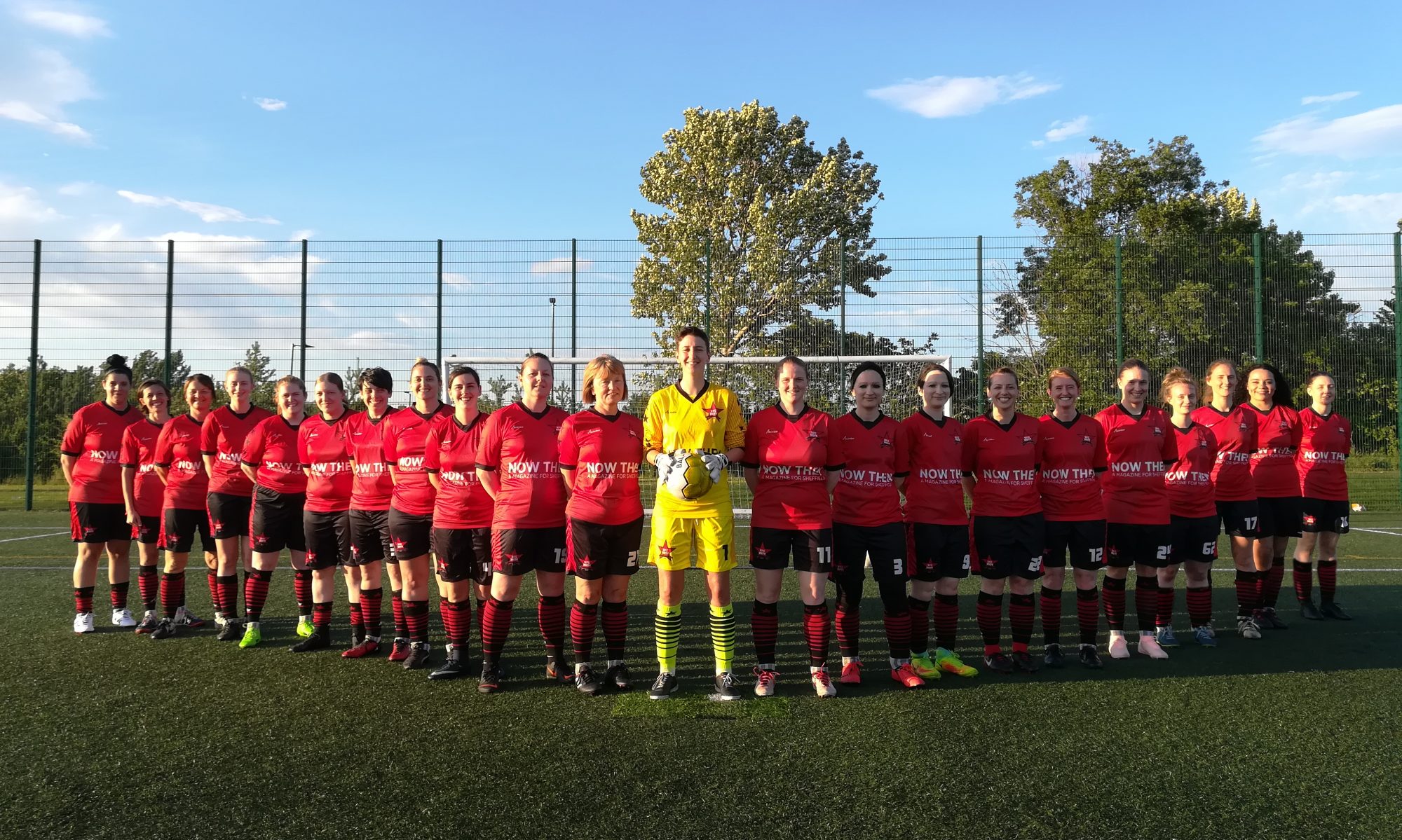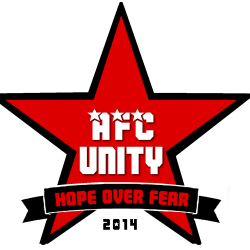Written by Jane Watkinson
After our club’s first ever season ended in 2015, I was asked to take part in the Social and Political Thought MA dissertation research by Chris Webster – a leading member of Yorkshire St. Pauli – on alternative football clubs and assessing their potential for social change.
I was interviewed given my role as co-founder and captain of AFC Unity, given it is an alternative football club for women creating and providing an alternative football environment (for more on why we are an alternative football club, check out our vision, values and mission statement here!)
 For me, the key point of Chris’s findings was that, as an alternative club, it should be more than just providing an escape – so an alternative environment based on fairness, equality, unity, hope not fear, anti-discrimination, anti-bullying, 100% positivity and empowerment, which are all central to shaping AFC Unity’s environment at trainings, games and club events – an alternative club should also try and change things around it as well.
For me, the key point of Chris’s findings was that, as an alternative club, it should be more than just providing an escape – so an alternative environment based on fairness, equality, unity, hope not fear, anti-discrimination, anti-bullying, 100% positivity and empowerment, which are all central to shaping AFC Unity’s environment at trainings, games and club events – an alternative club should also try and change things around it as well.
It is important that what happens within the club environment is consistent with the ethos and alternative thinking and beliefs shaping it. That’s why we have an alternative coaching philosophy – it emphasises the importance of respect, empowerment and positivity alongside encouraging individual creativity and expression but not at the expense of the whole.
Our Football for Food campaign – where we collect food via the club to help local food banks via Sheffield Food Collective and raise awareness of the reasons for why food banks exist increasingly at the rate they are doing – is an example of how the club is a tool for social change, with human agency/action in line with the vision and values at the centre of the club.
When I played football as a child, the primal focus of it was to have fun; to enjoy it and be creative. But something happens to a lot of keen footballers when they grow up (it happened to me!) as they come into contact with different environments where there is more pressure, focus on commercialisation, and less acceptance of unique and diverse football styles and talent.
At AFC Unity, we want to get back to creating that fun, non-pressurised environment that you associate with when you were younger, but also showing how powerful football can be as a tool for social change, and that the way you play football and act on and off the pitch can have a huge impact on those around you in your local community. This is something Chris talks about in his dissertation when looking at things such as ‘jumpers for goalposts’ and how this can be a powerful way to reclaim the sport, our community and our public space.
As Chris discusses, football provides the opportunity to have conversations with people and groups that you might never have met otherwise – and thus is a powerful way of linking micro and macro politics and helping the alternative vision of the club permeate the actions and agency of those within and outside the club.
For a more detailed, critical and theoretical consideration of these issues please check out Chris Webster’s dissertation, which can be accessed here. It is very good! Oh and also, if you are in Leeds or nearby check out Yorkshire St Pauli’s football sessions – you can ask Chris some follow-up questions about his dissertation as well:

